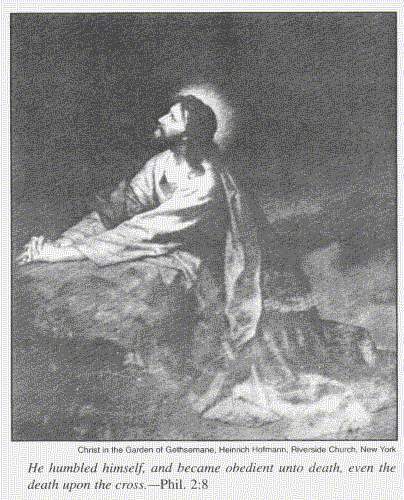
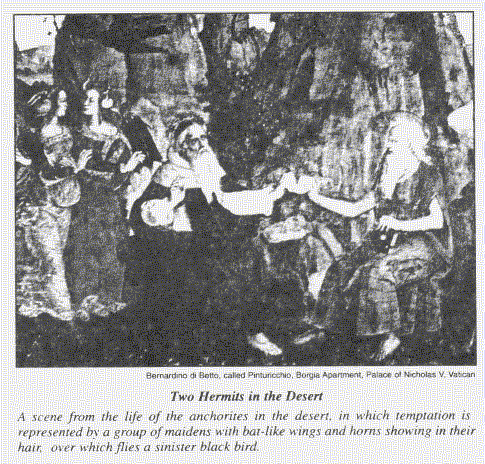
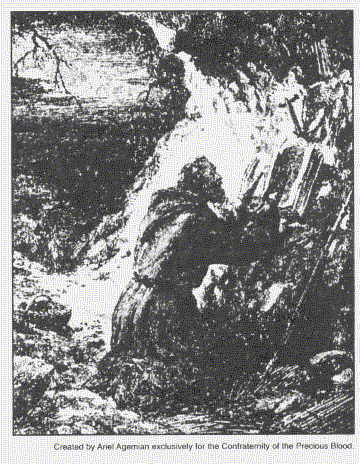
| rosicrucianU.com | ||
| Simplified Scientific Christianity |



As his death approached, Thomas Aquinas is reported to have said of his Summa Theologica, the magnum opus of Christian apologetics, that it was a failure: "All I have written is like straw." We may assume that he was referring to the gulf that shall always exist between a faith defined and explicated, however profoundly and brilliantly, disembodied, as it were, and a faith put to the test and lived, a faith incarnate. For it is the living of faith that is its most persuasive proof, which explains its very existence as the substance of what is hoped for, though not seen. And it is just such a commitment of faith to all facets of day-to-day living that characterizes the life and writings of the twentieth century Christian martyr, Dietrich Bonhoeffer, whose book, The Cost of Discipleship (MacMillan Co., New York, 1963), is, as its title suggests, a statement of the uncompromisable nature of Christ's calling.
Certainly Bonhoeffer lived his calling without extenuations or exceptions. To read his writing is to be caught up in a kind of rational doxology or lyrical catechism, to be lofted on the wings of his inspiring credo. Consider his description of the "costly grace" which is bestowed on each Christian:
"Such grace is costly because it calls us to follow, and it is grace because it calls us to follow Jesus Christ. It is costly because it costs a man his life, and it is grace because it gives a man the only true life. It is costly because it condemns sin, and grace because it justifies the sinner. Above all, it is costly because it cost God the life of his Son: 'ye were bought at a price,' and what has cost God much cannot be cheap for us. Above all, it is grace because God did not reckon his Son too dear a price to pay for our life . . . Costly grace is the Incarnation of God."
While grace alone (Christ's Self-giving) can save, the invariable corollary, human self-giving, must reciprocate, which is the obligation of discipleship. And what is it to be a disciple, to be one who is called? For Bonhoeffer it means a "final, radical renunciation of a self-willed life." The personal, worldly "self" is here signified. Christ is to be the Self that wills the Christian's life. So that the response of the disciple to Christ's summons is not a confession of faith but an act of obedience. That call finds no sufficient personal grounds for compliance because no merely personal warrant exists. We, of ourselves, are totally inadequate to the calling and must act on the basis of the call's inner authority, risking, indeed, perhaps sentencing to death, the old man secure in his worldly ways.
Bonhoeffer's thoughts abound with understandings familiar to students of Rosicrucian Teachings, for whom Christ Jesus is their Ideal. Because Christ is the embodiment of the living Law, He has (is) the last word; so that an exclusive attachment to His Person "bursts all the bonds of legalism." Here is the inner tribunal ratified as the aspirant's supreme guide. We may be so bold as to call that tribunal the trinitarian spirit (divine, life, human) expressing in and through the Being of the individualized Christ.
There is a darkness, a dimension of the unknown confronting each Christ-obedient disciple, separating the familiar and received from the promised and devoutly-to-be-wished, and only holy obedience can traverse this dimension. Obedience defines what we do, not what we know. Knowledge does not get us where we want to be, though it may facilitate beginning the doing. For Bonhoeffer, obedience precedes faith. "Unless he obeys, a man cannot believe." Interior assent is itself a form of obedience, predisposing the mind to the presence of grace and truth.
Disobedience consists in trying to keep some part of our life under our own (as versus Christ's) control. Surely the "serious thinker" is familiar with "righteous doubting." How does Bonhoeffer characterize this mental posture? It shows obedience to the devil's call: "Keep on posing problems, and you will escape the necessity of obedience." Such is the cost of acquiring the freedom to enjoy moral difficulties. Do we not know the commandments? Why then these subtle gainsayings and devious efforts to exempt ourselves from demanding moral choices? "You must not ask questions-get on with the job." "You can only know and think about it [truth] by actually doing it . . . for it is only through obedience that you come to learn the truth." Live the life and ye shall know the doctrine.
Dietrich Bonhoeffer was put in a Nazi prison for proclaiming and holding fast to his beliefs. Refusing to recant, he was executed near the end of World War II. He embraced the ultimate cost of discipleship. Upon reading this book, one must believe that the price he paid secured his discipleship; but, much more, with his spiritual poverty he bought a surpassing spiritual glory, a communion with the Christ, for Whom his whole life was an act of unconditional love, intellectual homage and brave, existential obedience.
— C.W.
The Philokalia (Faber & Faber, London-Boston, 1979) is a three-volume collection of texts written between the fourth and fifteenth centuries by spiritual masters of the Orthodox Christian tradition. It was compiled in the eighteenth century by two Greek monks. All but two of the texts were first written in Greek. A partial Russian translation was made in 1793 and had an immense impact on Russian spirituality and culture in the nineteenth century. Dostoevsky was steeped in and profoundly influenced by the writings. Remark-ably, an English translation was not begun until mid-twentieth century, and this was based on the Russian translation and covered only one third of the material in the Greek edition. The first volume of the complete English translation was not published until 1979. This is an extraordinarily late submission for a work which "might well be one of the greatest single contributions to perpetuating in the West what is highest in the Christian tradition."
How can this exceptional claim be justified? Let's start with the book's title, Philokalia, which means love of the beautiful, the exalted, the excellent; love of that which is the transcendent source of life and the revelation of truth. It is by this love that "the intellect is purified, illumined and made perfect." The texts in The Philokalia were selected for the purpose of fostering this purification, illumination, and perfection.
While much of western Christian patristic writing is doctrinal (and doctrinaire) and dogmatic, Orthodox writing is far more concerned with the science of the soul (psyche), with showing the way to awaken and develop attention and consciousness, to engender that state of watchfulness which is the hallmark of sanctity. Abstract speculation holds little interest for the holy persons represented by these texts. They are content to let God define Himself. Rather are they intent on recording the means by which the will and heart of man may be radically changed to enable spiritual fulfillment and union with God. So the writings are practical, prescriptive, often organized as a series of brief, pithy directives.
The authors of these writings make abundantly clear that all real knowledge lies within. They write from an esoteric perspective, setting forth the practices by which illusions can be identified and the mind may be made receptive to the Holy Spirit, Who teaches all things and brings all things to remembrance.
Two inner practices are stressed by all the writers represented in The Philokalia: guarding the intellect and pure prayer. A science and art is developed for effecting the purification and sanctification of the intellect, which results in the illumination of consciousness. Pure, breath-cleaving prayer (most commonly, the Jesus Prayer: "Jesus Christ, Son of God, have mercy upon me.") achieves a purity of heart which prepares the soul for theophany.
A formal or technical terminology was evolved by the desert fathers (eremites, monks, anchorites) to articulate the stages by which the whisper of temptation works its way to becoming the woe of an ingrained immoral habit. The authors, veterans of soul wars, knew that half the battle was won if the enemy could be detected. And the enemy, no matter what its outer guise, was demonic. Twentieth century material man, grownup in these matters, consigns demons to late night movies, adolescent T-shirts, and tabloid-magnified cult practices. Yet these early Christian soul pioneers knew that demons are ubiquitous and intimate, closer than hands and feet. They seek to ambush and waylay the spiritual pilgrim at every step, particularly as he advances in piety and purity.
The critical and unrelenting business of guarding the heart, of being watchful, begins with perceiving the dimmest shadow falling upon the soul's shrine and may devolve to a full and untrammeled assent to chronic immorality. The stages of temptation may be summarized as follows:
(1) Provocation designates the initial incitement to evil. This is an "image-free stimulation of the heart," proceeding from the devil, entering man's consciousness independent of his free will; for which, therefore, the soul is not responsible. Constant vigilance must be maintained so that, at its first appearance, the provocation can be identified and rejected, abruptly ending the temptation.
(2) Momentary disturbance of the intellect occurs if the provocation is not immediately dismissed but yet is not entertained by any movement or working of bodily passion.
(3) Communion occurs when the soul begins to converse with or entertain the demonic provocation, turning it over in the mind pleasurably. This coupling is no longer "image-free." It has become a thought and one is now morally responsible for this soul activity.
(4) Assent refers to the decision to act upon the suggestion. At this point, God can judge according to the intention of the heart. ("As a man thinketh in his heart, so is he.")
(5) Prepossession or prejudice results from repeated acts of sin which predispose a person to yield to particular temptations. It is the "involuntary presence of former sins in the memory." In principle, the soul retains free choice; but in practice, the force of habit makes it more and more difficult to resist further commission.
(6) Passion results if a person does not strenuously fight against a prepossession.
The key to arresting the process of temptation at the outset, at the portal to the heart's sanctuary, is watchfulness. Watchfulness signifies an attitude of attentiveness whereby one keeps watch over one's inward thoughts and fantasies, being a kind of benign Cerberus or microcosmic Michael, standing guard over the heart and intellect.
The advanced state attained by the diligent practitioner of ceaseless prayer and tireless vigilance is known as hesychia (stillness), which not only describes a soul which is imbued with tranquillity, but also is fixed, stable, and concentrated, or one-pointed. Hesychasm thus is frequently applied to the whole complex theory and practice which constitutes the path of soul purification and illumination.
The texts of the early Orthodox church fathers are eminently succinct and readable, often offered as a series of maxims or models for maintaining the economy and hygiene of the soul. Excerpts from but two of the authors follow. Saint Mark the Ascetic (fifth century) counsels:
"When you sin, blame your thought, not your action."
"The devil belittles small sins; otherwise he cannot lead us into greater ones."
"It is not helpful to know what comes later before you know what comes first."
"Distress reminds the wise of God, but crushes those who forget Him"
"God is the source of every virtue, as the sun is of daylight."
"Do not claim to have acquired virtue unless you have suffered affliction, for without affliction virtue has not been tested."
"The conscience is nature's book. He who applies what he reads there experiences God's help."
"Real knowledge . . . shows us that we deserve all we experience."
"Prayer . . . is the mother of the virtues: for it gives birth to them through union with Christ."
"Your words are only as wise and as profitable as your works."
"If, as Scripture teaches, everything involuntary has its cause in what is voluntary, man has no greater enemy than himself."
"Humility consists, not in condemning our conscience, but in recognizing God's grace and compassion."
"If you wish to make a blameless confession to God, do not go over your failings in detail, but firmly resist their renewed attacks."
"He who wishes to avoid future troubles should endure his present troubles gladly."
"Wisdom is . . . to accept as our due the malice of those who wrong us."
St. Hesychios the Priest (eighth century) writes:
"Watchfulness is a continual fixing and halting of thought at the entrance to the heart."
Four types of watchfulness may be defined:
(1) the close scrutiny of every mental image or provocation;
(2) freeing the heart from all thoughts, keeping it profoundly silent and still;
(3) continually and humbly calling upon the Lord Jesus Christ for help;
(4) always having the thought of death in one's mind. Demons' "unremitting purpose is to prevent the heart from being attentive, for they know how greatly such attentiveness enriches the soul."
"The Old Testament is an ikon of outward bodily asceticism . . . [The] New Testament is an ikon of attentiveness, that is, of purity of heart."
"The more the rain falls on the earth, the softer it makes it; similarly, Christ's holy name gladdens the earth of our heart the more we call upon it."
"Every evil thought produces in the intellect the image of some material thing; for since the devil is an intellect he cannot deceive us except by making use of things we are in the habit of perceiving by means of the senses."
From the forgoing quotations it should be clear that the texts of the early "desert fathers" provide ample evidence that they have taken to heart the summons of John the Baptist (Prepare ye the way of the Lord) as well as Saint Paul's admonition to be transformed by the renewing of your mind. The student of Western Wisdom Teachings can heed the injunction directed to all spiritual aspirants: For every step forward in occult (esoteric) development, take three steps forward in moral (character) development. The Philokalia can assist us in our efforts along these lines. It is a rich treasury of brilliant insights and luminous truths which, rightly used, will strengthen and purify our hearts and minds.
The caveat to watch and pray is, for service-oriented aspirants, subsumed under the motto, work and pray (ora et labora), a more comprehensive and demanding task since the physical body may be busy while the mind remains largely idle (and thus, potentially, the devil's playground). But if one prays constantly, the engaged and God-directed mind smites all demonic (in modern parlance, "negative") advances and insinuations. As an aid to staying on course, as well as staying the course, The Philokalia has few peers. As its three translators/editors write in the introduction to Volume I, this work "is an active force revealing a spiritual path and inducing man to follow it." It provides many resources for the practice of the contemplative life and it constitutes "a mystical school of inward prayer." Its emphasis is on cleansing "the inside of the cup and plate so that their outside also may be made clean," (Matt. 23:26) thus hastening our growing unto "the measure of the stature of the fullness of Christ."
— C.W.
— Rays from the Rose Cross Magazine, September/October, 1995
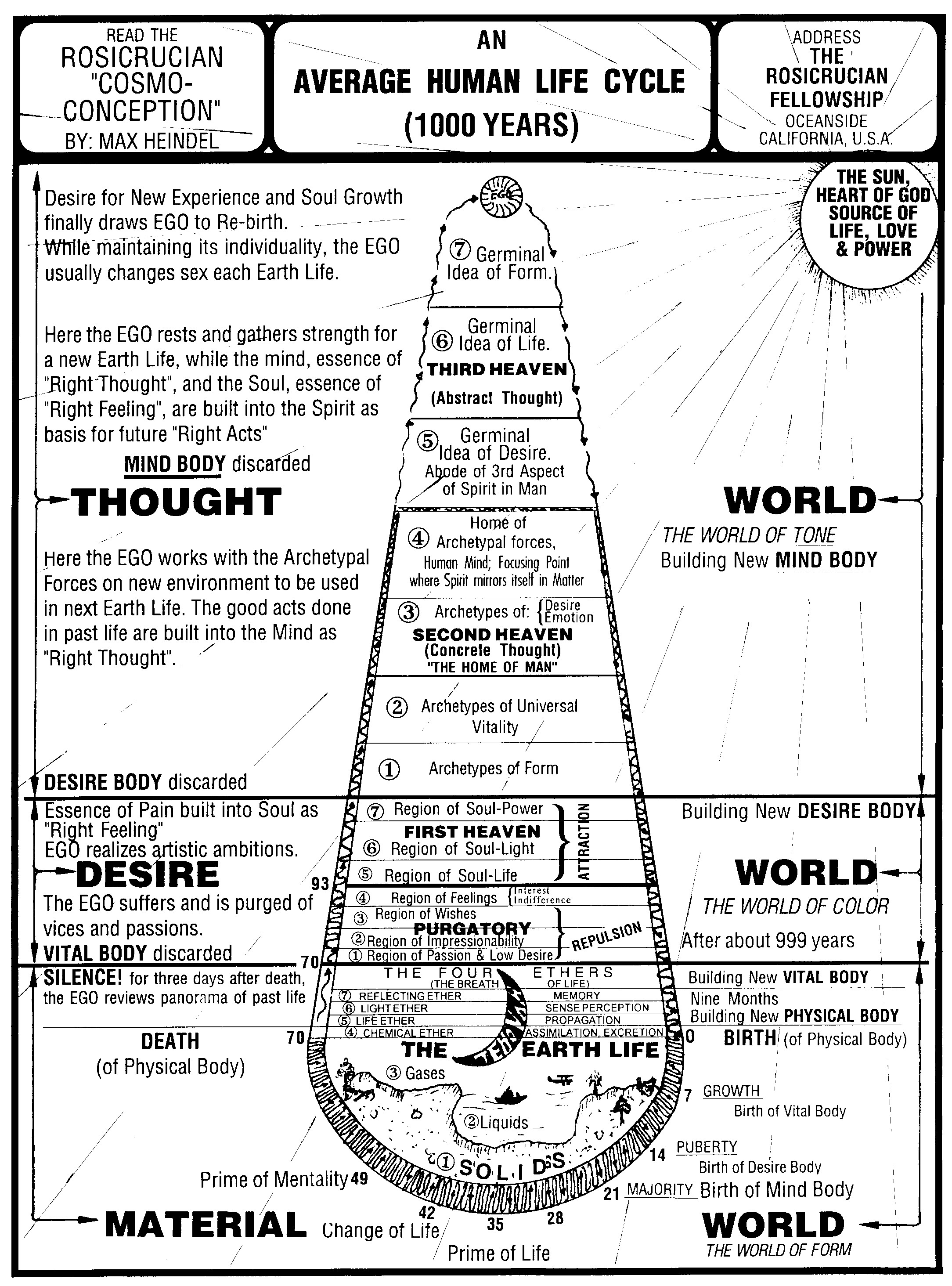
|
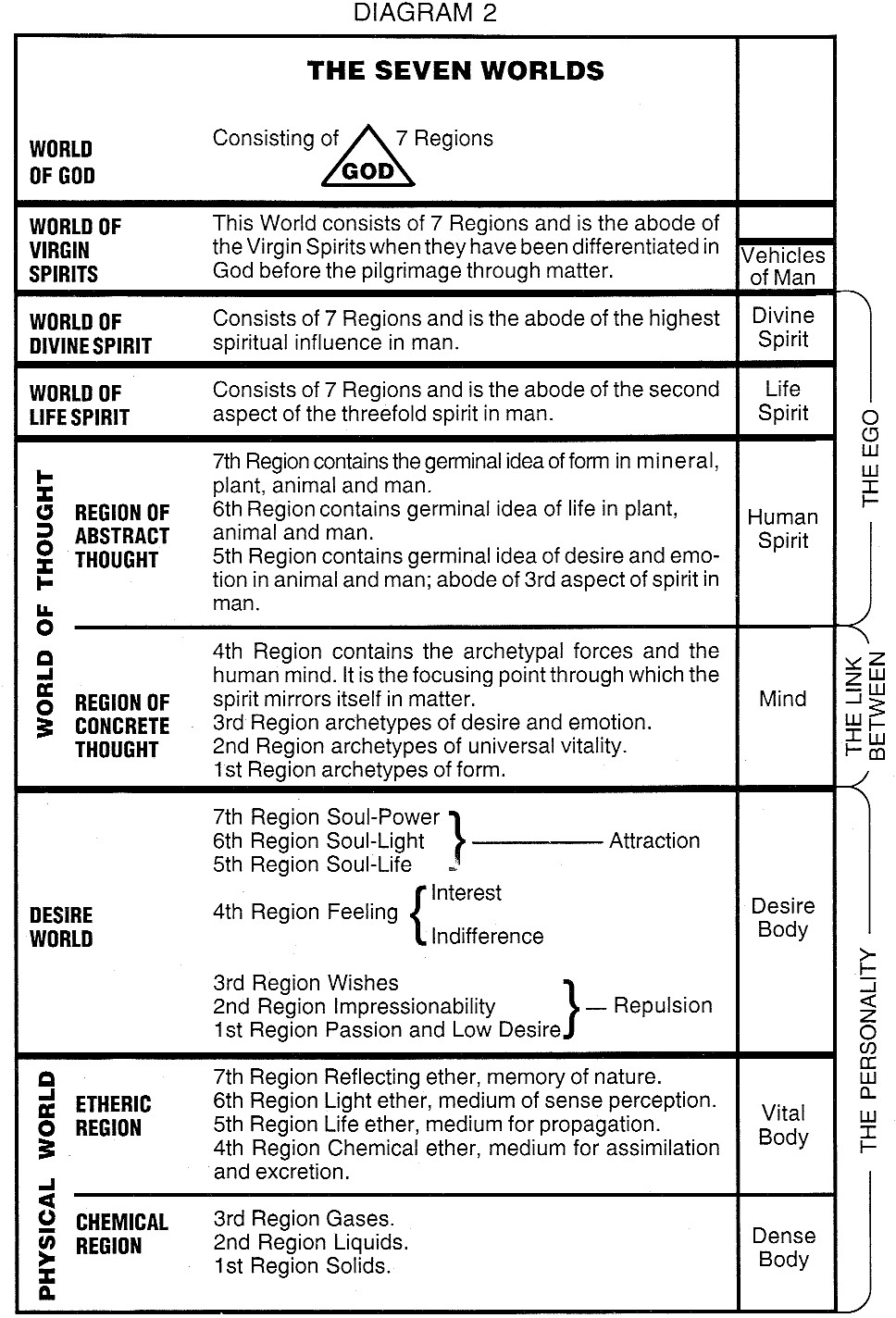
|
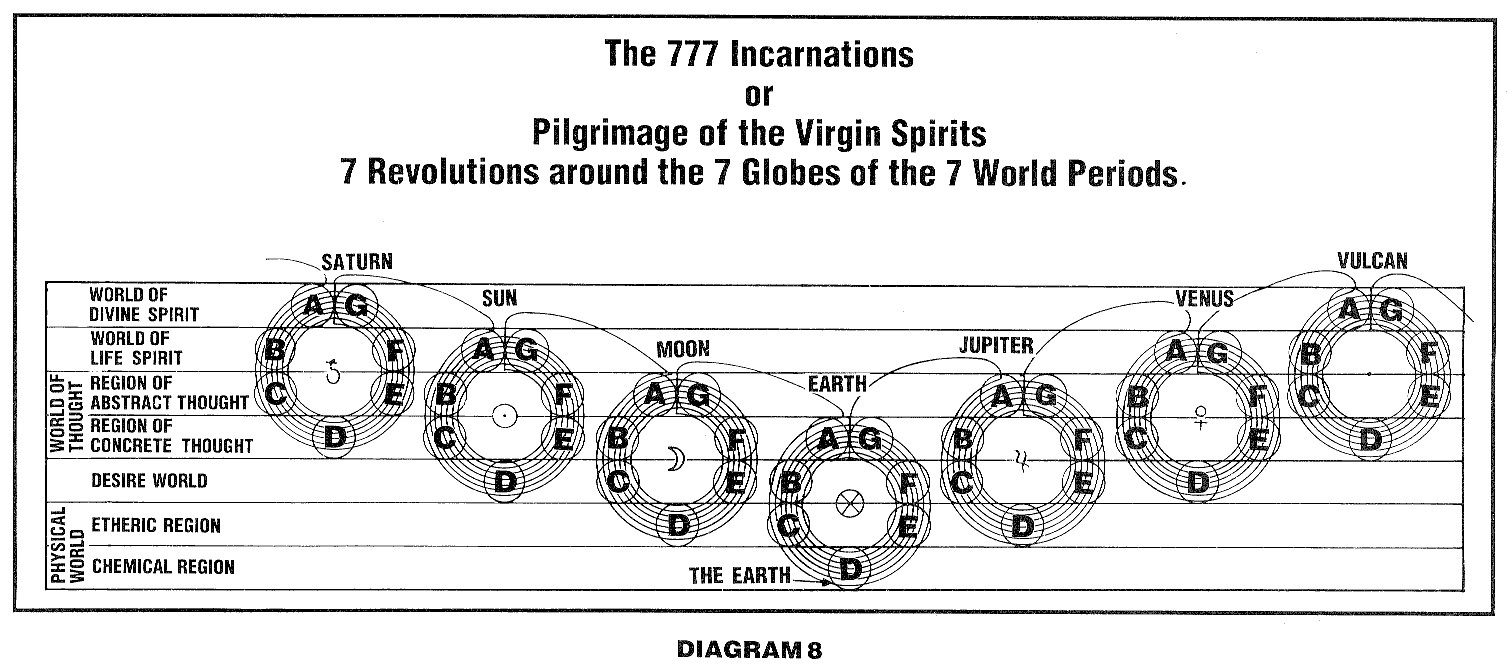
|
|
|
Contemporary Mystic Christianity |
|
|
This web page has been edited and/or excerpted from reference material, has been modified from its original version, and is in conformance with the web host's Members Terms & Conditions. This website is offered to the public by students of The Rosicrucian Teachings, and has no official affiliation with any organization. | Mobile Version | |
|